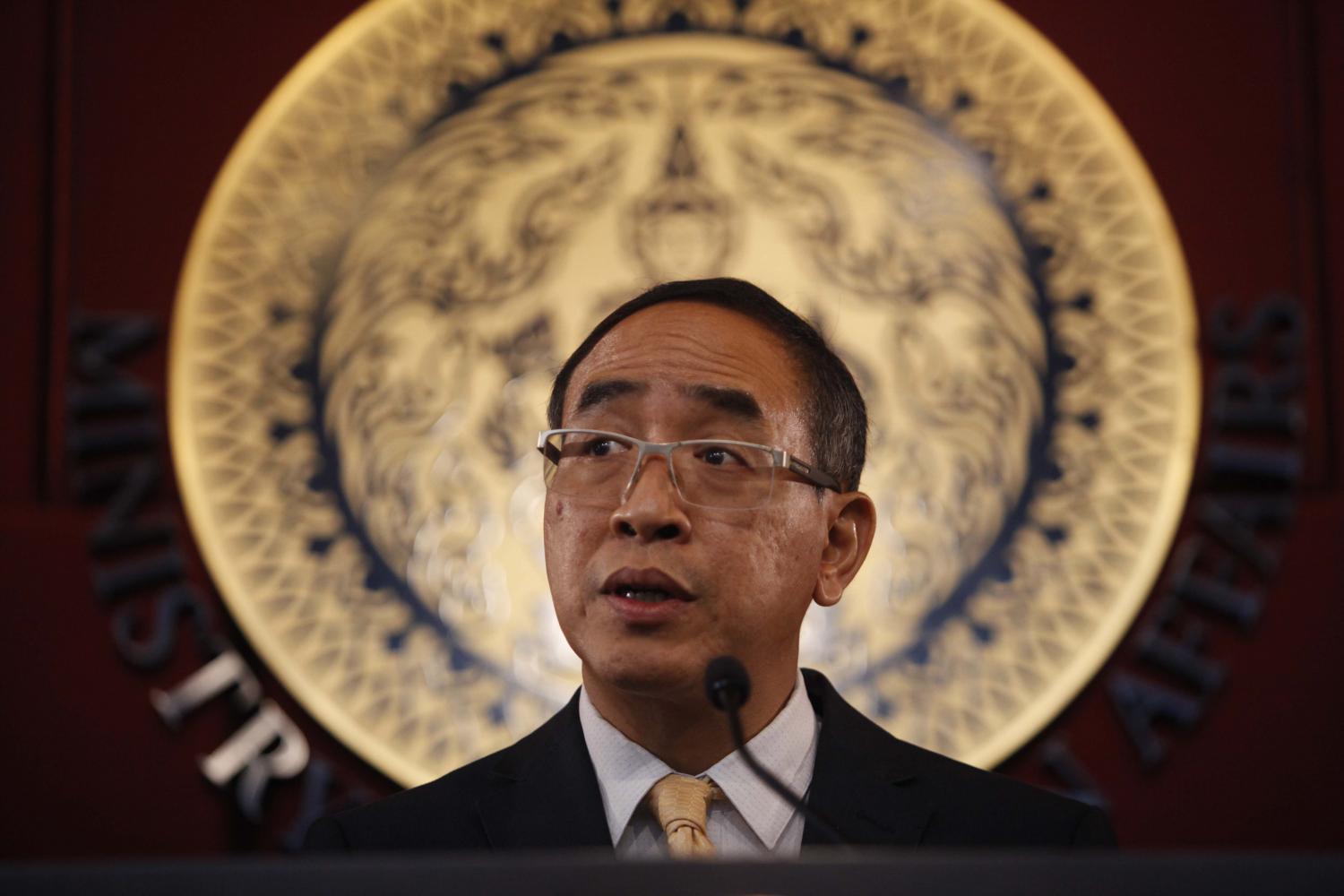
The Foreign Ministry on Saturday responded to a spokesman for the UN High Commissioner for Human Rights in Geneva on Friday who expressed concerns over Thailand's detention of pro-democracy activists, including a minor, under the lese majeste law.
Ministry spokesman Tanee Sangrat said Thailand's lese majeste law is not aimed at curbing people's rights to the freedom of expression nor the exercise of academic freedom or debate about the monarchy as an institution.
This type of law exists in many countries to protect the dignity of royal families in a similar way a libel law does for any Thai citizen.
Mr Tanee said this has been the precedent observed under the Criminal Code. But where lèse majesté charges are formally pressed, they are done so in accordance with due process, with many cases having received a royal pardon.
Regarding the recent move to charge a 16-year-old protester under Section 112, he said the case was presented to the Juvenile Court and it denied a request for detention and granted the minor conditional bail instead.
"Once again, it bears repeating that in the past couple of months, protesters have not been arrested solely for exercising their right to freedom of expression and peaceful assembly. Those arrested had violated other Thai laws and the majority have already been released," Mr Tanee said.
The UN human rights body expressed alarm on Friday over Thailand's detention of pro-democracy activists, including a minor aged 16 years, under the lese majeste.
"We are deeply troubled by the move by Thai authorities to charge at least 35 protesters in recent weeks, including a 16-year old student protester, under Article 112 -- the lese majeste provision of Thailand's criminal code," the United Nations Human Rights Committee said in a statement.